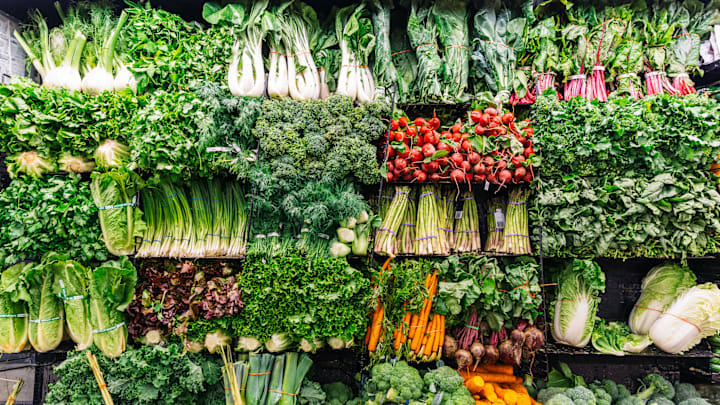“Just eat healthy food” is well-meaning advice, but as anyone who has stepped foot inside a grocery store will tell you, it’s not cheap. Shopping around the perimeter of a store—where the fresh fruits, vegetables, and meats are typically located—can leave shoppers with a sizable bill. Meanwhile, frozen meals and snacks are relatively cheap. So why does there seem to be a surcharge for choosing healthy options?
A recent report by Idil Karsit for CNBC provides some helpful context. When thinking of healthy foods like fish or vegetables, consider the supply chain involved: Fresh food needs to be transported quickly and efficiently, stored, and then replenished past its expiration dates. In the case of fruits, the demand for out-of-season varieties adds to those transport costs. So do labor shortages, which can affect how fresh food is collected and shipped.
Shelf-stable food, on the other hand, doesn’t need to make an expedited journey to stores. And once it’s there, it can sit idle for months at a time, all thanks to the preservatives that make them a comparatively less-than-ideal option for overall health. Couple that with the reduced expense that comes from manufacturing it in bulk, and you have a cheaper—albeit less nutritious—selection. On a per-calorie basis, junk food is typically less expensive than something packed with nutrients.
The net effect is that consumers can be wary of healthy foods. A 2023 Cleveland Clinic survey of 1000 Americans found that 46 percent of respondents declared the cost of fresh food as a barrier to eating better; 45 percent purchase fast (as well as cheaper) food at least once a week.
While eating well on a budget is harder, it’s not impossible. Sticking to fresh food that’s in season—and therefore less expensive to transport—can help. So can opting for frozen vegetables, which carry most of the same nutrition as fresh veggies. And remember that some pantry-style foods, like lentils, can be purchased in bulk and still be healthy for you.
[h/t CNBC]
